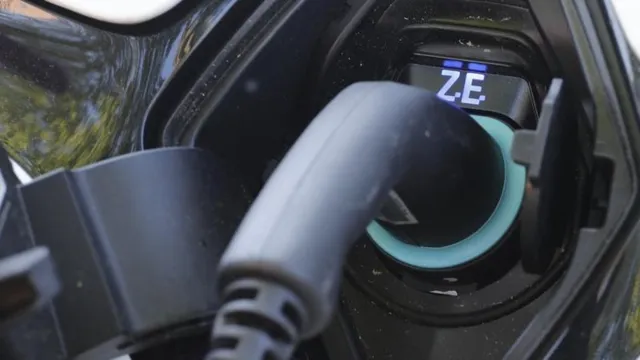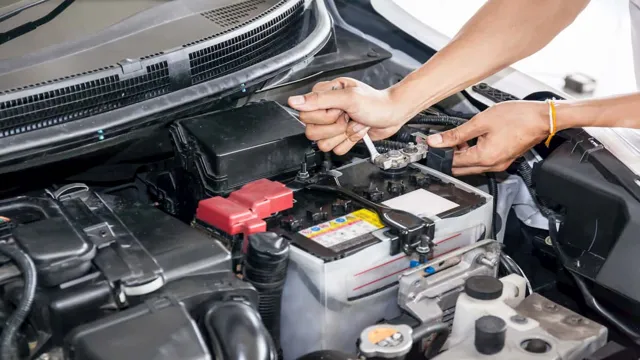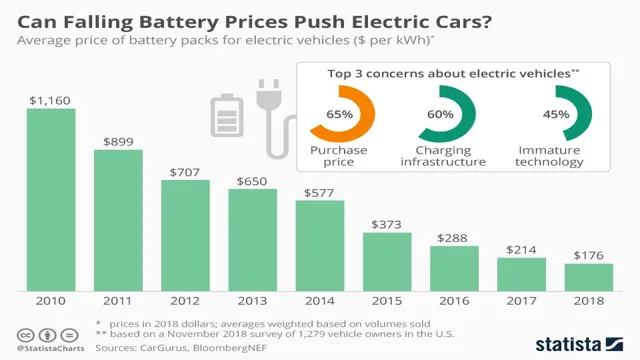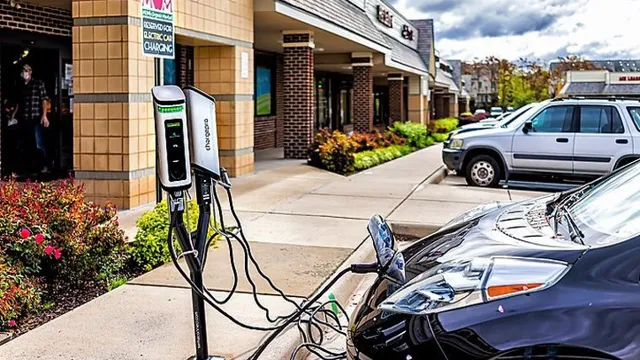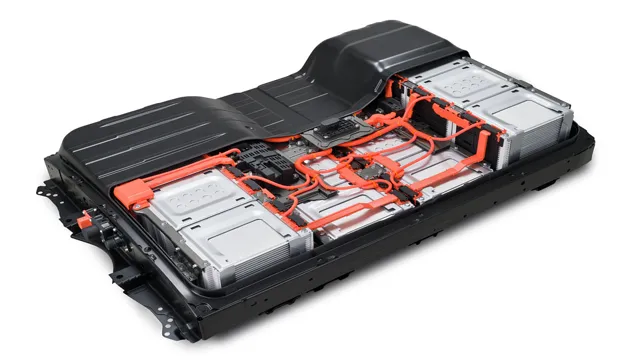Revving Up Your Range: All You Need to Know About Upgrading Electric Car Batteries
Electric vehicles have been an innovative addition to the automotive industry, offering eco-friendly transportation and lower operating costs. However, one of the key concerns that electric vehicle owners face is battery life. With time and usage, electric car batteries lose their capacity to hold a charge, leading to a decrease in range and performance.
But, with the advancement in technology, upgrading electric car batteries is now a possibility. Upgrading your electric car battery not only improves its range and performance but also increases its lifespan. With a more advanced battery pack, you can go further on a single charge and enjoy a smoother driving experience.
Additionally, upgrading your battery to a more extensive storage capacity also enables you to install additional charging systems at your home, office, or other convenient locations. However, making the decision to upgrade your electric car battery can be daunting. There are many factors to consider, such as the cost, compatibility, and technical requirements of the battery system.
Fortunately, with the right research and understanding, the process can be simplified and hassle-free. With this comprehensive guide, we will take you through everything you need to know about upgrading your electric car battery. We’ll dive into the different types of batteries available, the factors to consider before making a purchase, the installation process, and ways to maintain your new battery.
Whether you’re looking to improve your electric car’s range or prolong its lifespan, this guide has got you covered. So, let’s get started on this exciting journey towards a more efficient and eco-friendly electric vehicle!
The Basics of Electric Car Batteries
So you’re interested in electric cars, but you’re wondering if it’s possible to upgrade the battery for better performance? Well, the simple answer is yes, you can! However, there are a few things to consider before making any major changes. First of all, upgrading the battery can be expensive, as the cost of the new battery may not be justified by the improvements to the car’s overall performance. Furthermore, modifying the car’s battery may void the warranty or cause other issues.
It’s important to speak with an expert or do thorough research before making any modifications. That being said, upgrading electric car batteries has become more common in recent years, with companies offering larger-capacity batteries or retrofitting old batteries with newer technology. So, if you’re looking for an even more efficient, smooth, and reliable electric car, upgrading the battery may be worth considering.
Just be sure to do your due diligence before taking the plunge.
Learn about the components and functions of EV batteries
Electric Car Batteries Electric car batteries, or EV batteries, are the driving force behind electric vehicles. Understanding the basics of EV batteries is essential to grasping the mechanics of electric cars. An electric car battery is made up of several smaller batteries, called cells, which work together to power the car.
These cells are connected in series, with each cell adding voltage to the total battery voltage. The battery management system controls and monitors the charging and discharging of the battery, ensuring safe and efficient operation. The range of an electric car depends on the size and capacity of its battery, measured in kilowatt-hours (kWh).
The more kWh the battery has, the longer the car can travel on a single charge. As battery technology continues to improve, electric cars are becoming a more practical and environmentally friendly option for drivers.
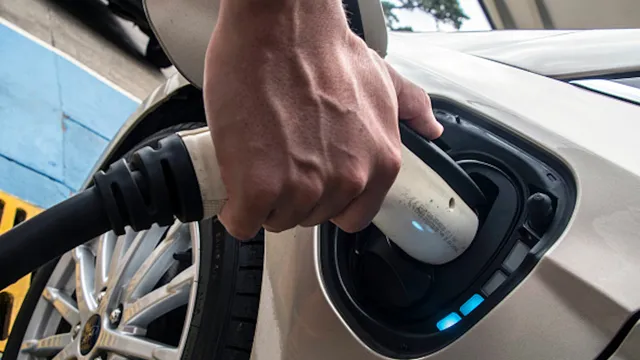
Can You Upgrade Your EV Battery?
Many people wonder if it is possible to upgrade the battery in their electric car. The answer is not a straightforward one, as it very much depends on the make and model of the vehicle you own. Some manufacturers offer battery upgrades, but the cost can be quite high.
Additionally, there may be compatibility issues with the new battery and the car’s existing components, meaning that upgrades may not always be possible or straightforward. However, if you are committed to improving your electric car’s range, there are other steps you can take. For example, you could install a home charger to make sure your car is always fully charged, or you could check whether your car has an eco or efficiency mode that can help you get more miles out of each charge.
With some careful planning and consideration, you can maximize your electric car’s performance without necessarily needing to upgrade the battery.
Explore the types of electric car batteries and their limitations
Electric car batteries come in various types, including Lithium-Ion, Nickel-Metal Hydride, Lead Acid, and Sodium-Nickel Chloride. Each battery type has its own set of advantages and limitations. Lithium-Ion batteries are the most commonly used in EVs due to their high energy density, fast charge times, and long lifespan.
Nickel-Metal Hydride batteries, on the other hand, are more prone to overheating and have a shorter lifespan. Lead Acid batteries are inexpensive but bulky, making them less suitable for EVs, whereas Sodium-Nickel Chloride batteries are still relatively new and untested in the marketplace. The battery lifespan can be affected by several factors, including usage habits, weather conditions, and charging habits.
While some EV manufacturers offer battery upgrades for their models, others do not. Upgrading an EV battery may be feasible, but it is expensive and may not necessarily provide a significant boost in driving range, so it ultimately depends on the individual’s preferences and financial situation.
Factors to Consider Before Upgrading Your EV Battery
If you’re wondering, “can I upgrade the battery in an electric car?”, the answer is yes, but it’s not always the best option. Before deciding to upgrade your EV battery, consider the age and condition of your car, your driving habits, and your budget. If your car is already several years old and has a lot of mileage, it might not be worth the investment to upgrade the battery.
Additionally, if you don’t typically drive long distances, a larger battery might not provide much benefit. On the other hand, if you frequently take road trips or have a long commute, upgrading to a larger battery could give you more range and eliminate range anxiety. Finally, keep in mind that while upgrading your battery can be a great way to extend the life of your EV, it can also be costly, so make sure to budget accordingly.
Overall, upgrading your EV battery can be a smart choice, but it’s important to weigh the pros and cons and consider all factors before making a decision.
Assess your driving habits and the cost of battery replacement
If you’re considering upgrading your EV battery, it’s essential to assess your driving habits and the cost of battery replacement. Firstly, you’ll want to evaluate your typical driving distance per day and if it aligns with your current battery’s capacity. If you often find yourself cutting it close on power and needing to charge frequently, it may be time for an upgrade.
However, if you frequently go long periods without driving, it may not be worth the investment. Additionally, the cost of battery replacement can be quite steep – often upwards of $5,000. Therefore, consider how long you plan to keep your EV and how much you’re willing to spend on maintenance.
It may be more financially responsible to keep your current battery until it no longer functions adequately. Ultimately, it’s crucial to weigh the benefits and drawbacks of upgrading your EV battery before making a decision.
Research available options and compatibility with your vehicle
Upgrading the battery of your electric vehicle (EV) is a significant decision that requires careful consideration of several factors. The first crucial factor is to research the available options in the market. Ensure you explore options from reputable manufacturers and established vendors to avoid risks associated with defects.
Another important consideration before upgrading your EV battery is compatibility with your vehicle. Your vehicle’s make, model, and age are critical in determining whether a battery upgrade is feasible. Older models might not support newer and higher-capacity batteries, while others may require additional modifications for a battery upgrade to work efficiently.
It’s also essential to consider the type of battery technology that works best for your needs, such as Lithium-ion or Nickel-Metal Hydride. Ultimately, you must weigh the costs of upgrading to determine if it’s worth the investment and consider if the upgrade aligns with your long-term sustainability goals.
The Benefits and Drawbacks of Upgrading Your EV Battery
If you’re a happy EV owner, but you find yourself needing a longer driving range, you might be wondering about upgrading your battery. While it’s technically possible to upgrade your EV battery, there are some important things to consider. First and foremost, it’s essential to check whether your car’s manufacturer offers battery upgrades for your specific model.
If they do, be prepared for a substantial investment because new batteries can be quite expensive. However, the good news is that you’ll enjoy a longer range and potentially faster charging times, which can be invaluable for frequent travelers. On the other hand, if you go for an aftermarket battery upgrade, you may save some money but run into issues like reduced performance and warranty invalidation.
Additionally, upgrading your battery might be more hassle than it’s worth, especially if you don’t have a reliable mechanic or don’t feel comfortable working on your car. All in all, battery upgrades can be a great way to improve your EV, but make sure you weigh all the pros and cons before making a decision.
Discover the potential improvements in range, performance, and resale value
Upgrading your EV battery can potentially improve your electric car’s range, performance, and resale value. However, it’s important to weigh the benefits against the drawbacks before making a decision. On the one hand, a new battery can add significant range to your car, allowing you to travel further without worrying about recharging.
It can also improve your car’s acceleration and speed, making it more responsive and enjoyable to drive. Additionally, if you’re looking to sell your car in the future, a newer battery can increase its resale value. On the other hand, upgrading your battery can be quite expensive and may not be cost-effective, especially if your current battery is still functioning well.
Additionally, replacing your battery can be a complex process that requires trained professionals. It’s important to research and compare different options before making a decision. Overall, while upgrading your EV battery can bring potential benefits, it’s important to carefully consider the costs and potential drawbacks.
Consider the downsides such as cost, warranty, and service availability
While upgrading your electric vehicle (EV) battery can have benefits such as increased range and performance, it’s important to also consider the drawbacks before making the investment. One significant factor to consider is the cost. Depending on the type of battery and the specific make and model of your EV, the cost of a battery upgrade can vary and may be quite expensive.
Additionally, it’s important to consider the warranty and service availability for the upgraded battery. Some manufacturers may void the warranty for the vehicle if an aftermarket battery is installed, and finding service for the upgraded battery may be more difficult. It’s important to carefully weigh the benefits and drawbacks before deciding to upgrade your EV battery.
Expert Advice on Upgrading Your EV Battery
As electric cars become more mainstream, many drivers are wondering if they can upgrade the battery in their vehicle. The short answer is yes, it is possible in some cases to upgrade your EV battery. However, the process can be complicated, costly, and may not be worth it for some drivers.
It’s important to consider factors such as the age of your vehicle, the type of battery it currently has, and the cost of the new battery. Additionally, upgrading your battery could impact the warranty on your vehicle or even damage the car’s electronics. Before considering a battery upgrade, it’s important to consult with an expert in electric vehicles to determine if it’s the right choice for you and your vehicle.
Conclusion
So, can you upgrade the battery in an electric car? The short answer is: it depends. While some manufacturers allow for battery upgrades, others may not offer this option. Additionally, retrofitting a new battery into an electric car can be a complex and expensive process.
However, with the rapid pace of technological advancement, it’s possible that future electric car models may offer even more flexible and upgradeable battery options. Until then, remember that a well-maintained and efficiently used battery can go a long way in maximizing your electric driving experience.”
FAQs
Can I upgrade the battery in my electric car?
It depends on the make and model of your electric car and the available options for battery upgrades offered by the manufacturer. You may also consider consulting with a third-party service provider.
How much does it cost to upgrade the battery in an electric car?
The cost of upgrading the battery in your electric car varies based on the make and model of your car, the type of battery upgrade, and the service provider you choose. It can range from a few thousand dollars to tens of thousands of dollars.
How long does it take to upgrade the battery in an electric car?
The duration of battery upgrade installation varies based on the make and model of the car, the type of battery upgrade, and the service provider’s experience. It could take a few hours to several days.
Will upgrading the battery in my electric car affect its warranty?
It depends on the manufacturer and the type of battery upgrade. If you upgrade the battery with a manufacturer-approved or authorized service provider, it may not void the warranty. However, it’s best to check with the manufacturer before upgrading the battery.
